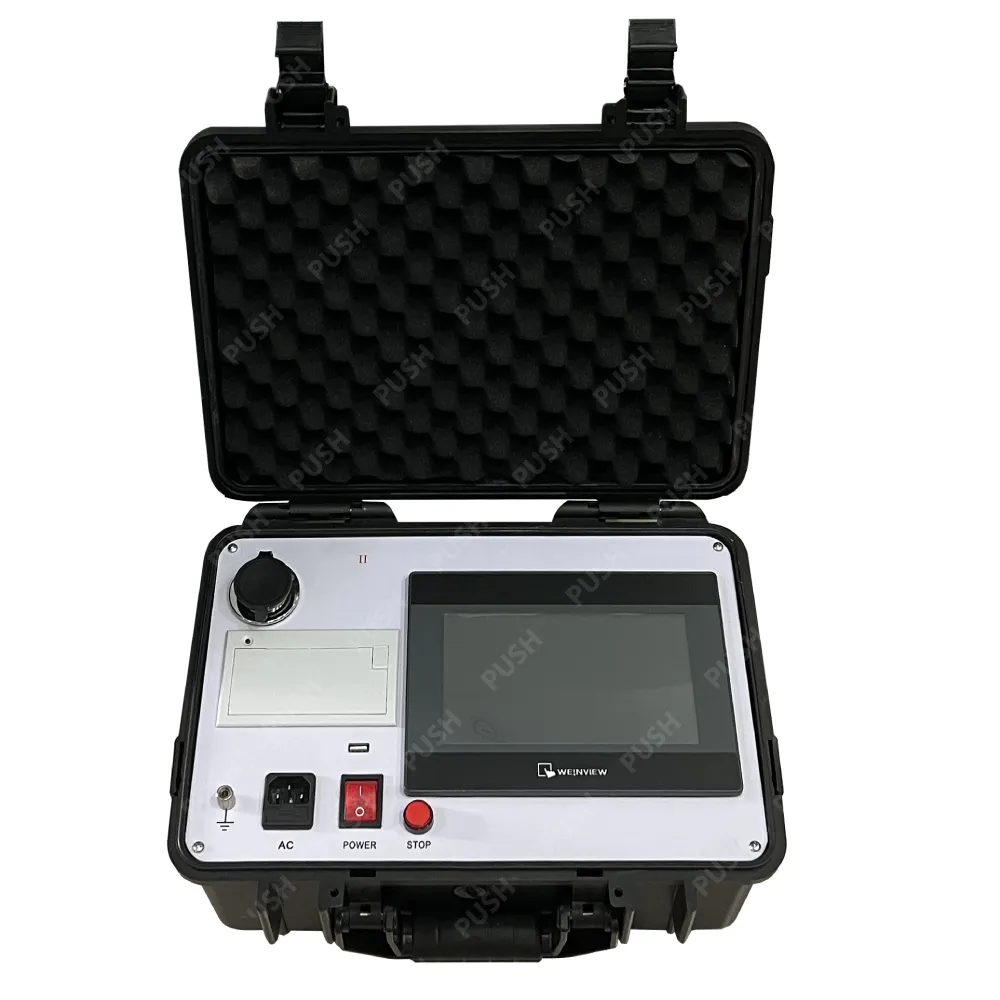 English
English


AC DC Withstand Voltage Testing Equipment for Electrical Safety Evaluation and Compliance
Understanding AC DC Withstand Voltage Testers
In the realm of electrical engineering and quality control, the importance of testing equipment cannot be understated. Among the vital tools in ensuring the safety and reliability of electrical systems is the AC DC withstand voltage tester. This instrument plays a critical role in verifying the insulation strength of various electrical components and systems, making it essential in numerous industries, including manufacturing, power distribution, and telecommunications.
What is a Withstand Voltage Tester?
A withstand voltage tester, also known as a dielectric strength tester, is designed to assess the insulating properties of materials and components by subjecting them to high voltage levels. It applies a specified voltage, either alternating current (AC) or direct current (DC), to the insulation of the device under test (DUT) to identify any potential weaknesses or failures in the insulation system. The goal is to ensure that the device can operate safely under normal operational conditions without the risk of electrical breakdown.
AC vs. DC Testing
Withstand voltage testing can be conducted using either AC or DC voltage. Each method has distinct characteristics and applications. AC testing is typically used to assess the insulation properties of components that will operate on AC power. It simulates the real-world conditions that the insulation will encounter during its lifetime. Conversely, DC testing is often employed for evaluating the insulation of devices that will operate on DC power systems. It provides a different stress environment for the insulation, which can be beneficial in certain scenarios, such as testing high-voltage components.
Why is Withstand Voltage Testing Important?
Withstand voltage testing serves several crucial purposes in the electrical industry
ac dc withstand voltage tester

1. Safety Assurance The primary aim of withstand voltage testing is to ensure the safety of electrical equipment. Weak insulation can lead to electrical shocks, equipment failures, or even fires. Regular testing helps to mitigate these risks.
2. Quality Control For manufacturers, implementing withstand voltage testing is an essential quality control measure. It verifies that products meet established safety standards and enhances the reliability of the final product.
3. Preventive Maintenance In service environments, regular testing of existing equipment can help identify potential failures before they occur. This proactive approach minimizes downtime and costly repairs.
Best Practices in Withstand Voltage Testing
To ensure accurate and safe testing, engineers and technicians must follow best practices when using a withstand voltage tester. This includes selecting the appropriate test voltage according to industry standards and the type of insulation being tested. Proper training for personnel operating the tester is also crucial to avoid accidents and ensure reliable results.
Conclusion
In conclusion, the AC DC withstand voltage tester is a fundamental tool in modern electrical safety and quality assurance practices. Its ability to evaluate the insulation integrity of electrical components under various conditions allows for greater confidence in the safety and reliability of electrical systems. As technology continues to advance, the importance of rigorous testing remains paramount in safeguarding both equipment and personnel in the electrified world we live in.
-
Differences between open cup flash point tester and closed cup flash point testerNewsOct.31,2024
-
The Reliable Load Tap ChangerNewsOct.23,2024
-
The Essential Guide to Hipot TestersNewsOct.23,2024
-
The Digital Insulation TesterNewsOct.23,2024
-
The Best Earth Loop Impedance Tester for SaleNewsOct.23,2024
-
Tan Delta Tester--The Essential Tool for Electrical Insulation TestingNewsOct.23,2024





